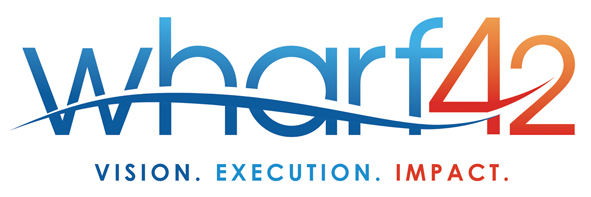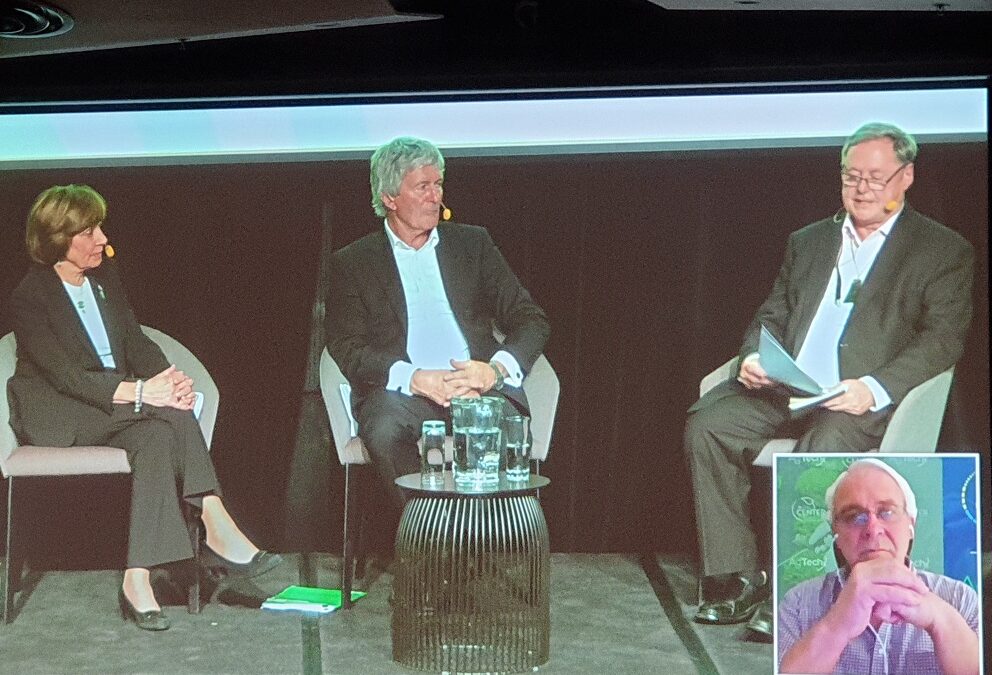
by Peter Wren-Hilton | Oct 12, 2022 | 2035 Oceania Summit
The 2035 Oceania Summit finally concluded yesterday after two days of highly stimulating presentations and great delegate engagement. It’s been an awesome experience to put on what we hope will become a staple event, not just in New Zealand, but around the world. Supporting farmers and growers address climate change by reducing their GHG emissions and adapting to a changing climate has never been more important.
Over the coming weeks, we’ll be publishing videos of every plenary presentation and panel discussion to the Summit website. Today however, we want to focus on just one significant upcoming follow-up opportunity. We call it ‘What’s Next?”
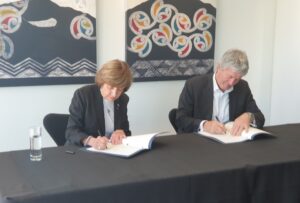
A highlight of Day 2 of the Summit was the formal signing of a Letter of Intent (LOI) between New Zealand & California, committing both to greater collaboration around the development of ‘Smart Agriculture’ opportunities. I was delighted to join NZ Minister of Agriculture Hon Damien O’Connor and California Food and Agriculture Department Secretary, Karen Ross, at the formal signing ceremony at Auckland’s Aotea Centre.
Shortly after, I was joined by Damien & Karen on the main stage for the Summit’s final session, ‘What’s Next?’ We were joined remotely by Dennis Donohue, Director, Western Growers Innovation & Technology Center, in California.
We discussed the opportunity that the LOI offered. It’s not a channel that is exactly new to me or to Wharf42. We have been working with Dennis and the team at WG since 2016. It’s an opportunity a long time coming.
It’s appropriate then that we were able to share the news that on June 22-23, 2023, Wharf42 and the 2035 Summit team will be supporting a brand new ‘Growers Summit’ in Salinas, North California, in association with Western Growers. The Summit is supported by Secretary Ross and the CDFA. The purpose of the Summit is to focus on the use of biological inputs to land and crops. For New Zealand researchers and agritech businesses operating in this domain, the Salinas Summit will provide a unique channel to a significant commercial opportunity. We’ll be publishing extensive details via both the Wharf42 and the 2035 Summit websites in the run-up to next year’s event.
Today, I’m joining Secretary Ross and the California delegation on a day’s field trip to meet growers in South Auckland. Having spent two days talking about it, today we will finally experience it.
To all the Summit’s sponsors, speakers, moderators and of course our delegates, a huge thank you. The past two days have been a blast!
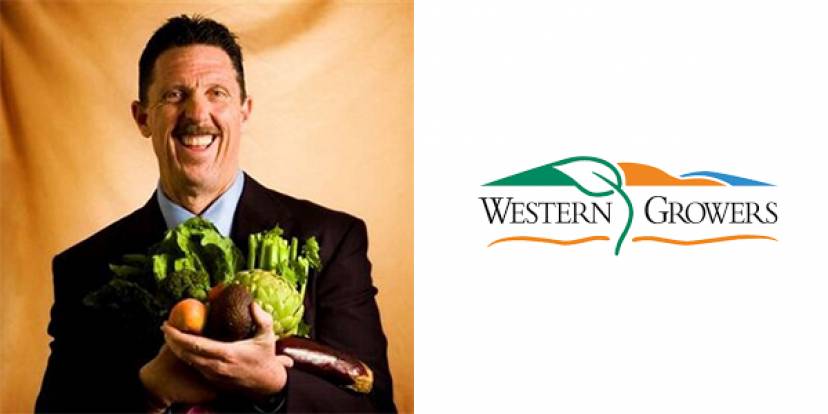
by Peter Wren-Hilton | Sep 10, 2022 | Western Growers
I was honoured recently to be invited by Western Growers to join the online tribute to the late Hank Giclas, former Director of Innovation at WG.
I first met Hank back in 2015 when I first began to focus on the emerging new investment asset class, called agritech. I was based at the time in Sunnyvale, Silicon Valley, and traveled to the Western Growers Innovation & Technology Center in Salinas, Northern California. It was the beginning of a long-standing relationship that continues today.
I met Hank during one of those early visits and together with Center Director, Dennis Donohoe, we began to discuss how the Center and New Zealand’s emerging agritech sector could potentially collaborate. In 2018, when Jacqui and I finally established Agritech New Zealand, Hank flew from the US to join us in Tauranga for the launch. I remember well our visit to the Plant & Food Research facility at Te Puke where we spent time on a kiwifruit orchard. Hank was a tall man and had to constantly keep his head low to avoid banging into the canopy. We went onto the PFR building and tasted some of Zespri / PFR’s experimental kiwifruit cultivars. For Hank, it was an important moment. He got to understand the valuable connection that exists between research and industry in New Zealand. It was a lesson he took back to the States.
Hank stepped down from his role at WG at the beginning of the pandemic. Whilst we did not meet again because of closed borders, my memories of Hank are of a gentle man who had a fierce interest in the future of his industry and a solid understanding of the growers who worked in it. He is already sadly missed.
I’m honoured to share the online tribute below:
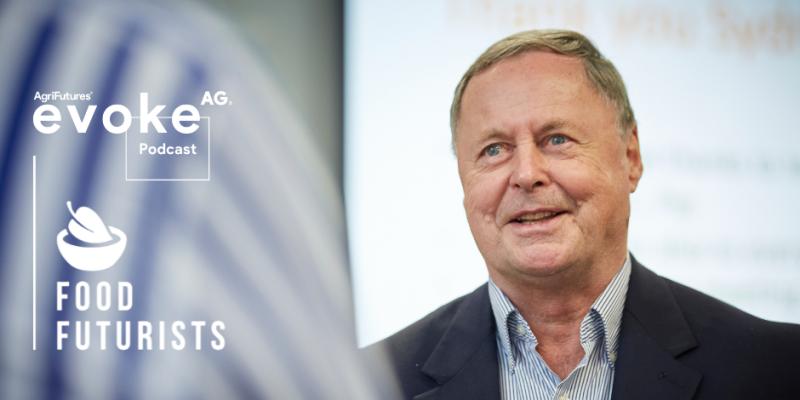
by Peter Wren-Hilton | Aug 12, 2022 | 2035 Oceania Summit
In June, I was delighted to spend time with Professor Andy Lowe during the pre-2035 Oceania Summit workshop in Adelaide.
In the Food Futurists x evokeAG. collab podcast below, Andy spoke to me about the importance of collaboration and agritech innovation to address climate change. To read the evokeAG article in detail, please check out the link and podcast here
Early bird tickets to the 2035 Oceania Summit are about to close. To purchase yours and meet an amazing group of delegates traveling across the Tasman, book yours today at www.2035.ag/registrations/
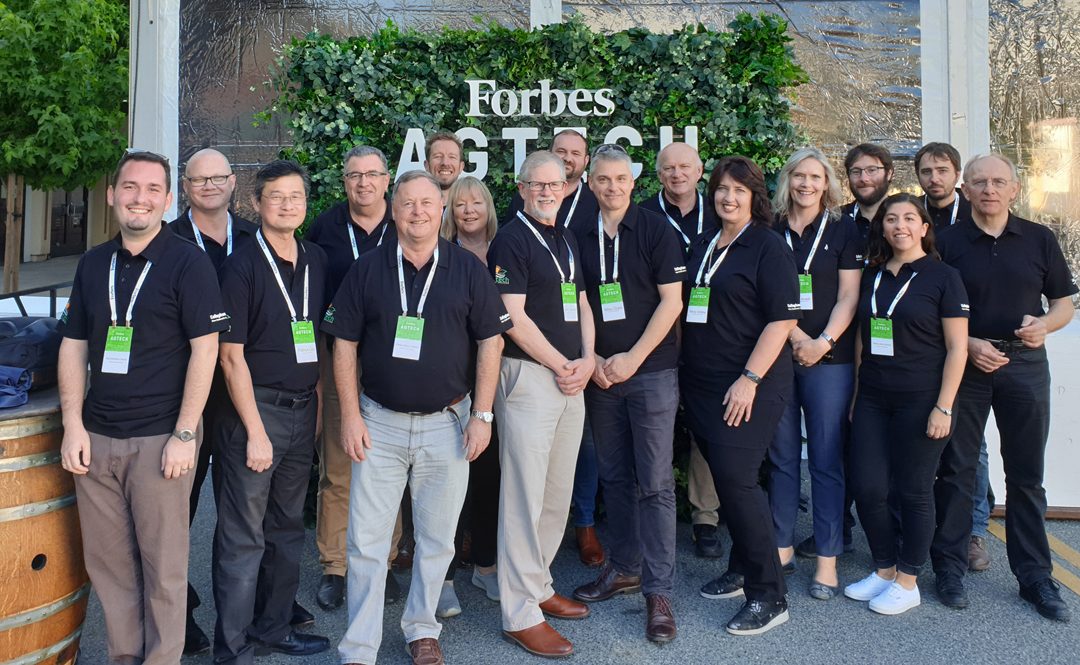
by Peter Wren-Hilton | Aug 9, 2022 | Wharf42
Over the past few months, I’ve been thinking more deeply about the role that agritech can play in supporting New Zealand’s primary sector scale globally.
Taken at its simplest, agritech has the ability to address a number of ‘on-farm’ or ‘beyond the farm gate’ challenges. We are buoyed by our ‘Good for the World’ purpose and it helps drive the NZ Agritech story. Dig a little deeper however, and the reality becomes a little less evident.
New Zealand’s Ministry for Primary Industries and the Ministry for Foreign Affairs and Trade lead the way when it comes to securing market access for New Zealand’s producers. Recently, they successfully secured Free Trade Agreements with both the UK & the EU. The two Ministries achieved the best results they could. Whilst the outcomes benefited some primary sector players however, not every sector was happy. It’s a tough mantra when your main focus and realistically only driver is ‘the interests of the New Zealand producer’. ‘Good for the World’ becomes harder to define. Particularly when you are negotiating with parties providing little to no flexibility.
It goes beyond government. That focus and that driver lies at the heart of many of New Zealand’s Crown Research Institute public funding models. The science and IP generated (which for the record is outstanding) is frequently developed and commercialised for the benefit of the New Zealand producer only. It’s a core part of the funding settings. Exporting that science and IP internationally is not a priority and therefore potential licencing and revenue-generating income is not returned to either New Zealand’s research community or the New Zealand taxpayer.
It’s pretty clear that these models do not exactly fit the ‘Good for the World’ mantra. Our agritech sector however operates differently. It actively seeks out collaborative partnerships with, and in, global markets. As an example Callaghan Innovation & NZTE are supporting agritech entrepreneurs visit Ireland & the UK in September, Australia in February and potentially the US in June.
In October this year, the California Department of Food & Agriculture Secretary Karen Ross, is bringing a delegation of officials and growers over to New Zealand for the 2035 Oceania Summit. They are looking to identify potential agritech solutions that might help address some of the challenges that they face back in the US. It made me think more closely around the wider role that New Zealand’s agritech sector can take to support its primary sector. Through developing global relationships based on innovation, trust, common interest and dare I say it, a ‘Good for the World’ mindset, can agritech become a core ‘soft’ diplomatic tool for the wider agriculture sector?
It’s a model I’m becoming quite familiar with. In Australia, I’m fortunate to sit on the evokeAG steering committee. In the US, I sit on the Western Growers Global Advisory Board. This provides a two-way channel for offshore market engagement. It helps build trust and potentially breaks down some of the traditional roadblocks faced by our trade negotiators. Looking for a ‘win-win’ outcome that potentially incorporates agritech collaboration into formal trade negotiations is an interesting prospect.
As an example, whilst the FTA’s with the UK & the EU have been concluded, food security remains a key concern for both countries/blocks. An article on agritech collaboration would have meant that whilst quotas and tariff negotiation had come to an end, on-going engagement, collaboration and partnership hadn’t. It’s an interesting conversation that as a wider sector, I feel we should have.
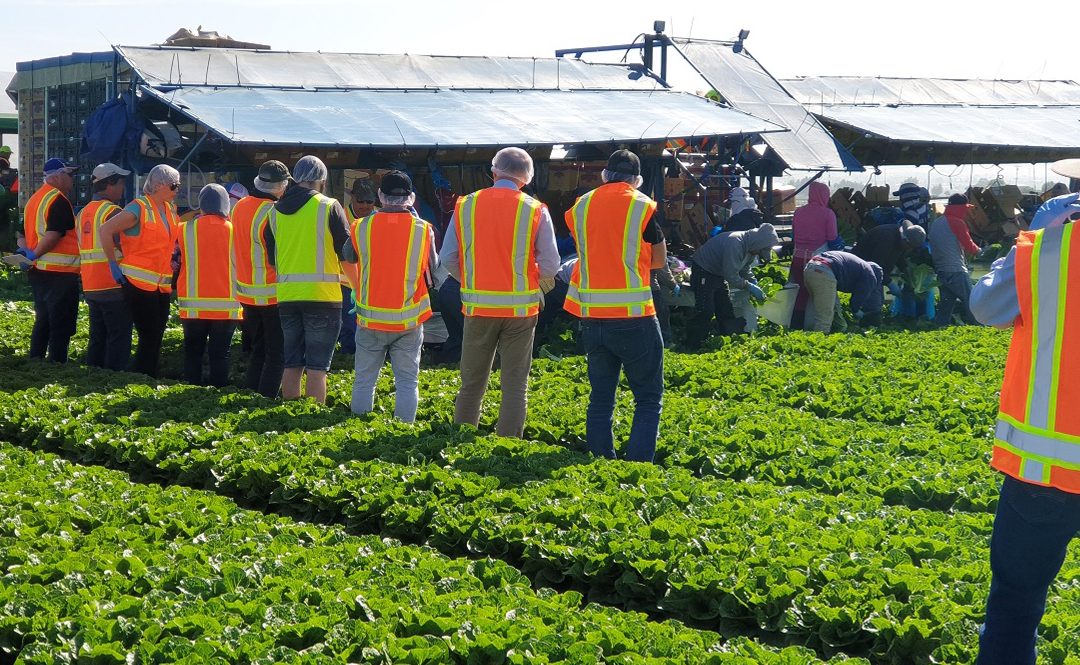
by Peter Wren-Hilton | Jul 31, 2022 | 2035 Oceania Summit
Last week, Wharf42 was delighted to be able to share the news that the Secretary of the California Department of Food and Agriculture, Karen Ross, will be a keynote speaker at the 2035 Oceania Summit.
The Secretary’s visit supports a key purpose of the Memorandum of Understanding signed by New Zealand PM Jacinda Ardern and California Governor Gavin Newsom in San Francisco. As the Summit seeks to identify the tools and technology necessary to assist farmers and growers everywhere to reduce their greenhouse gas emissions, securing increased trans-Pacific collaboration with California is a significant opportunity for the Oceania region’s agrifood technology sector.
The Secretary will be accompanied by Dennis Donohue, Director of the Western Growers Innovation & Technology Center (WGITC). The Center is based in Salinas in Northern California and has been visited several times by both New Zealand and Australian agritech delegations. For some context, Western Growers members account for over 50% of all fresh produce production in North America. (Personal Disclosure: I sit on the WGITC Global Advisory Board and have learnt at first hand many of the challenges that face these members).
They are not unique to California. Labor (lack of and cost of), a persistent multi-year drought and a drive to increase the use of biologicals are all key areas that growers across much of the US West coast are addressing. One of the main purposes of the Global Advisory Board is to identify offshore research and product that can help meet these challenges. October’s 2035 0ceania Summit provides a platform for New Zealand and Australian research entities and agritech businesses to share their stories with the in-bound delegation.
As indicated above, securing increased trans-Pacific collaboration with California is a significant opportunity for the Oceania region’s agrifood technology sector. If you are looking to enter the US market, October’s Summit will be a great introduction to some of the major opportunities that exist.
In order to register to attend the Summit, early bird ticket pricing closes on 15 August. You can purchase your ticket today at Registrations | Oceania Agritech (2035.ag)


